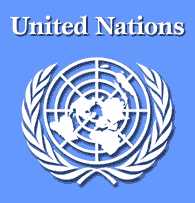A landmark UN vote on homosexual human rights was on Thursday derailed at the last minute by an alliance of disapproving Muslim countries - Malaysia, Pakistan, Egypt, Libya and Saudi Arabia, reports The (UK) Guardian.

Notably, the United States has not taken a public position on the resolution but the National Gay and Lesbian Task Force confirmed that officials in the International Lesbian and Gay Association in Europe had relayed to them the US decision to abstain from the vote.
The draft is the first-ever UN resolution seeking all its member states to promote and protect the human rights "of all persons regardless of their sexual orientation."
The UN had been due to vote on Thursday but was delayed by the five Muslim countries, which had introduced amendments designed to kill it off.
Pakistan on behalf of the Organisation of the Islamic Conference suggested a 'no action' motion in order to avoid the resolution going to a vote, stating that this issue was not a proper subject for consideration at the Commission on Human Rights, that it created rights, which are in direct confrontation with Islam and their legislation.
The 'no-action' motion was defeated by a narrow margin with 24 votes against, 22 votes in favour and 6 abstentions.
Currently, over 70 countries have a complete ban on homosexuality, with sentences ranging from imprisonment to public flogging and death. In Chechnya, Iran, Iraq, Mauritania, Saudi Arabia, Sudan and Yemen, same-sex relations are punishable by execution.
Same-sex relations are also harshly repressed in Bangladesh, Egypt, Malaysia and Pakistan, with maximum sentences ranging from three to 20 years jail while in some countries, such as Mexico, El Salvador, Columbia and Brazil, right-wing death squads target gay and transgendered people for assassination in what they call 'social cleansing' campaigns.
Referring to the Muslim alliance, Peter Tatchell, a British gay rights campaigner who first lobbied the UN for a commitment to gay equality over 30 years ago, highlighted that those countries' records of gay human rights abuses showed why the resolution was urgently needed.
"The vote has been derailed and delayed by Islamic fundamentalist states where gay people are either jailed, flogged or beheaded." He said.
The vote has been postponed to Friday, 25 April, which is the last day of the Commission.
